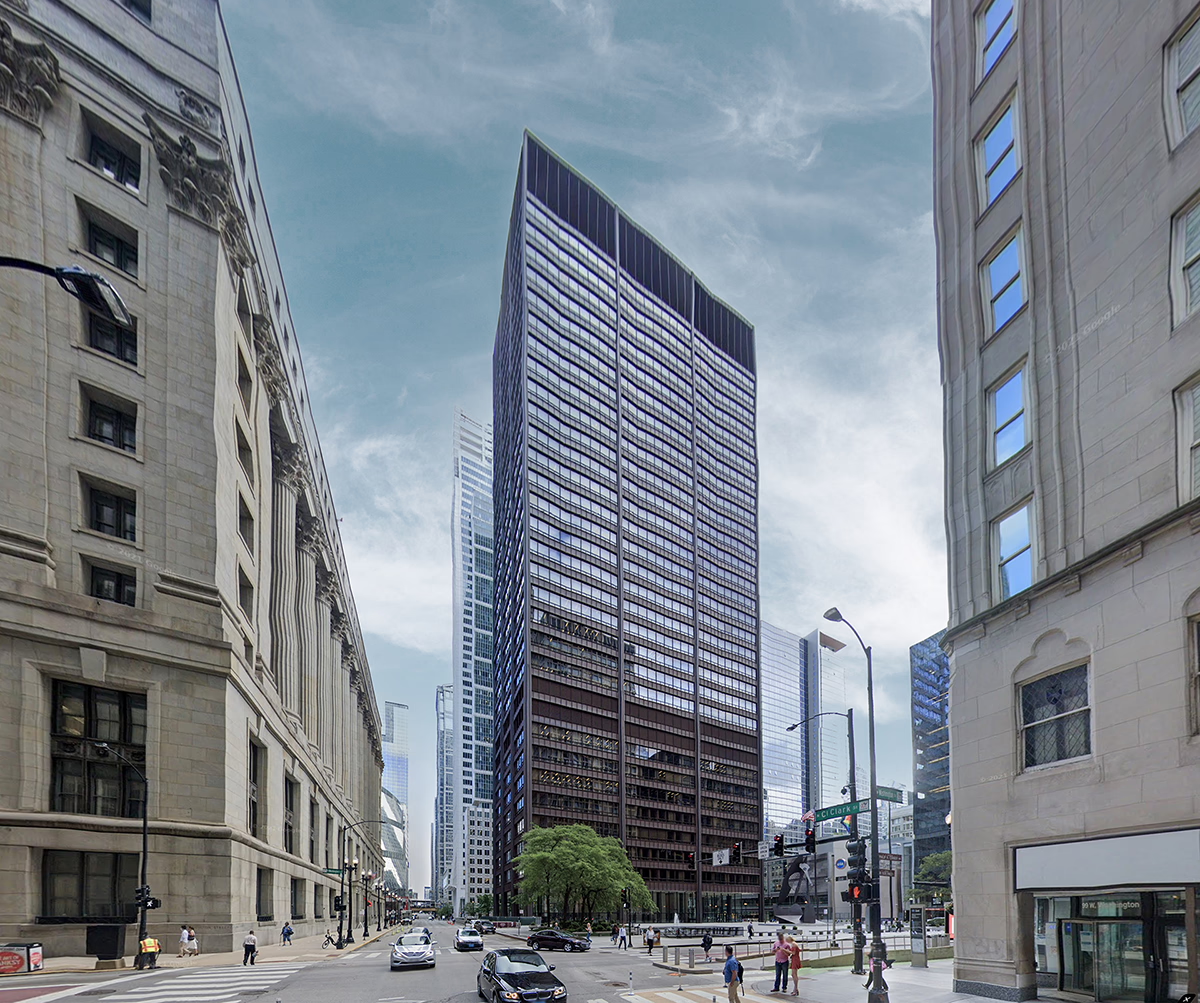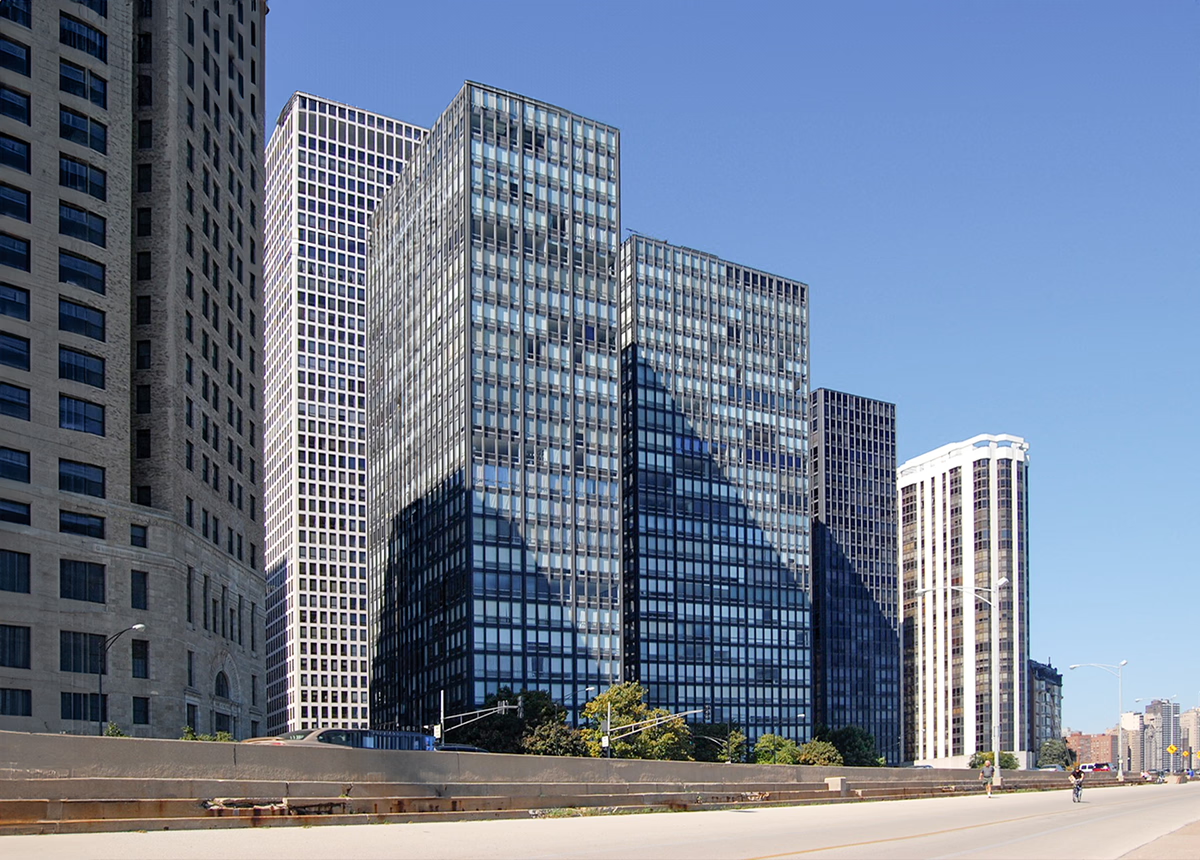Richard J. Daley Center vs 860-880 Lake Shore Drive Apartments


Comparing the Richard J. Daley Center and the 860-880 Lake Shore Drive Apartments is interesting because they both rise in Chicago, IL, yet they were conceived by two different design teams, C.F. Murphy Associates and Mies van der Rohe, and were completed at different points in time. They were finished more than a decade apart.
This contrast within the same city allows us to see how different creative minds interpreted the evolving needs of Chicago across time.
Let's take a closer look!
Height & Size
The Richard J. Daley Center is clearly the larger tower of the two, both in terms of height and number of floors. It rises to 650ft (198m) with 31 floors above ground, while the 860-880 Lake Shore Drive Apartments reaches 269ft (82m) with 26 floors above ground.
Richard J. Daley Center also offers more total built-up area, a total fo 1,500,003 sqf (139,355m2), which is about 766,982 sqf (71,255m2) more than what the 860-880 Lake Shore Drive Apartments offers.
Of course, each project may have faced different briefs or regulatory constraints, which we don't really know about and could also explain the outcome.
Architectural Style
Both the Richard J. Daley Center and the 860-880 Lake Shore Drive Apartments were designed in line with the aesthetic conventions of the International Style style.
At the time, this style was at the height of its popularity. So both C.F. Murphy Associates and Mies van der Rohe followed what was in many ways expected of them, producing designs that fit comfortably within contemporary architectural norms, rather than breaking with convention.
Uses
The Richard J. Daley Center is primarily governmental, while the 860-880 Lake Shore Drive Apartments is primarily residential.
The 860-880 Lake Shore Drive Apartments offers 248 residential units.
Structure & Facade
The two buildings opted for different structural and facade solutions.
The Richard J. Daley Center uses a Framed Tube In Tube system, which combines a strong central core with a perimeter tube of columns, while the 860-880 Lake Shore Drive Apartments uses a Frame system, that relies on a regular grid of columns and beams to sustain its weight.
And when it came to the facade, the Curtain Wall went with a Curtain Wall facade, which uses a lightweight glass curtain wall hung from the structure, while the 860-880 Lake Shore Drive Apartments opted for a Window Wall facade, that uses panels fitted between floor slabs, leaving slab edges visible.
| Richard J. Daley Center | 860-880 Lake Shore Drive Apartments | |
|---|---|---|
| C.F. Murphy Associates | Architect | Mies van der Rohe |
| 1963 | Construction Started | 1949 |
| 1965 | Year Completed | 1951 |
| International Style | Architectural Style | International Style |
| Governmental | Current Use | Residential |
| 31 | Floors Above Ground | 26 |
| 198 m | Height (m) | 82 m |
| 11,399 m² | Footprint Area (m²) | 1,216 m² |
| 139355 | Built-up Area (m²) | 68100 |
| Framed Tube In Tube | Structure Type | Frame |
| Steel | Vertical Structure Material | Steel |
| Concrete | Horizontal Structure Material | Concrete |
| Yes | Facade Structural? | No |
| Glass, Cor Ten | Main Facade Material | Glass |
| Chicago Public Building Commission | Developer | Herbert Greenwald |
| IL | State | IL |
| Chicago | City | Chicago |
| 55 West Randolph Street | Address | 860–880 Lake Shore Drive |